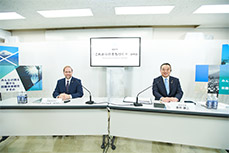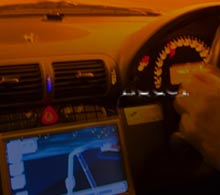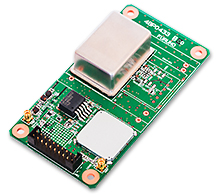Articles for ITS market Japan's Smart City: New Moves toward Practical Use
The world's only futuristic experimental city, Woven City
There are still many issues to be addressed on how to manage data in smart cities.
Smart cities are a new way of thinking about urban development, and the goal is to use IT to increase the convenience of people's lives and companies' social activities.
In addition, from the perspective of the SDGs (Sustainable Development Goals), various companies in the transportation, communications, energy, and other fields are collaborating with local governments to conduct various demonstration tests or are studying the implementation of such tests.
Against this backdrop, Toyota's Woven City is attracting attention as a smart city led by an automaker.
Toyota President Akio Toyoda unveiled the world premiere of the Woven City concept at CES (Consumer Electronics Show) 2019, the world's largest international trade show for consumer electronics and IT, in Las Vegas, U.S. in 2019.
In the automotive industry, from the mid-2010s, and due to the influence of CASE (Connected, Automated Driving, New Services such as Sharing, and Electrification) advocated by Daimler Mercedes-Benz of Germany, the interpretation that a "once-in-a-century industrial revolution" is taking place from the 2010s to the 2020s has spread around the world.
The relationship between the car and society is being examined in terms of power supply systems and data management.
Toyota Woven City is currently the only example of a large-scale, futuristic experimental city built by an automaker on its own in the world.
On February 23, 2021 (Mt. Fuji Day), a ground-breaking ceremony was held at the site where Woven City will be built.
As of October 2021, the foundation work is progressing steadily.
So far, there have been no announcements based on specific materials or data about the activities of Woven City, and President Toyoda has only given fragmented explanations in the question-and-answer session of the earnings announcement.
Data management and private and public areas
Against this backdrop, Susono City in Shizuoka Prefecture, where the Even City is to be built. An online briefing was held for the media and citizens on October 5, 2021, titled "Toward the Realization of a Prosperous Rural Future City Susono, that everyone can be proud of”.
The two attendees were Kenji Takamura, mayor of Susono City, and James Kuffner, director of Toyota and CEO of Woven Planet Holdings, the company that oversees Toyota's new IT development.
To begin, there was a Toyota-affiliated automobile assembly plant that started operation in 1967 on the site where the Woven City is to be built. It ceased production in December 2020 and transferred its operations to a Toyota-affiliated plant in Miyagi Prefecture. Toyota and Susono City have had a deep, community-based relationship for more than 50 years.
In this online briefing session, the city of Susono, which is close to Woven City, introduced a regular seminar led by the city of Susono in the Iwanami district of Susono City. Where residents participate in thinking about the relationship between Woven City and the local community.
Specifically, Toyota will use the corporate version of the Hometown Tax Donation Program to redevelop the area around Iwanami Station on the JR Gotemba Line in the Iwanami district. The e-Palette, a small self-driving bus used at the Tokyo Olympics and Paralympics, and the C+walk T, a small stand-up mobility vehicle already on the market by Toyota, will be used to make the area around Iwanami Station a transportation node to Woven City.
Also, Susono City has the Fifth Susono City Comprehensive Plan, which was compiled in January 2021. In this plan the city has launched the Susono Digital Creative City Concept, which takes into consideration the collaboration with the Woven City.
Toyota and Susono City, from their individual perspectives, value opportunities for face-to-face discussions on how the Woven City and the local community should deal with each other through workshops and online information sessions.
In such situations, the challenge is the handling of data.
CEO Kuffner touched on the foundation of the project, saying, "Generally speaking, most projects that are called smart cities are based on public land, but Woven City is a private area related to Toyota.
In addition, he pointed out that further discussions are needed between Toyota and Susono City on how to structure the ownership and management of data, and the movement of people and goods in the Iwanami area.
As examples of smart cities worldwide, the area around Peking University in China, where IT companies are concentrated, and Seattle, Washington in the US, where Amazon's headquarters are located, have an environment that is easy to commercialize because of the close relationship between the entities and the government already in place.
Meanwhile, in the case of Google's new attempt to expand in Toronto, Canada, the initiative was ultimately abandoned, albeit due to a variety of factors.
A major hurdle to the success of smart cities may be the difficulty of sharing data between private and public areas, as pointed out by CEO Kuffner.
Data management awaits GAFAM? What about Japan?
In order to facilitate the management of data between such companies and government agencies such as municipalities, there is a concept of urban OS.
Operating systems (OS), such as Apple's iOS and Google's Android, are well known, but in general, urban OS is often used in the sense of a platform for data.
In Japan, there are discussions about urban OS in various ministries and agencies.
For example, the Ministry of Land, Infrastructure, Transport and Tourism (MLIT) discussed the idea of a MaaS (Mobility as a Service) platform at the 2020 MaaS (Mobility as a Service) Study Group. In this discussion, the Ministry expressed the view that Japan has no choice but to make effective use of existing systems (or operating systems) with global standards.
In other words, the interpretation is that co-prosperity and coexistence with GAFAM (Google, Apple, Facebook, Amazon, and Microsoft) is necessary.
Until fiscal 2020, the Japanese government has had a total of five consultative bodies, including the Cabinet Office, the Ministry of Internal Affairs and Communications, the Ministry of Land, Infrastructure, Transport and Tourism, and the Ministry of Economy, Trade and Industry, working side by side on policy planning for smart cities, MaaS, and other data-driven urban development. It is possible that the Kishida administration will consolidate these discussions around the newly established Digital Agency.
A re-examination of industry-academia-government collaboration begins for the practical application of Japan's version of a smart city.
Writer introduction

Mr. Kenji Momota Automotive journalist
His major is the world automotive industry and he is also familiar with the energy industry, IT and the aging society problem as the related fields. He acts around the world based in Japan and USA and writes for the general magazines, the technology journals and the automotive related media etc.
He is also commentator of motor race and world's motor show on TV program based on his career of the driver of Indy Racing League and NASCAR. In recent years, he has been covering about a paradigm shift from developed countries to developing countries, the motorized vehicle like EV and the telematics.
FURUNO ITS Journal
Click here for the latest articles after 2022 (in Japanese)2022
- The "realistic" self-driving roadmap shown by the Japanese government and a hands-on report on the latest Subaru EyeSight X
- Will FCVs (Fuel Cell Vehicles) Become Popular? ~New Movement in Toyota and Honda~
- The 'Complete' online sales of new cars start in Japan. Will this new way of buying cars take root?
- Many Firsts! On-Site Report from Tokyo Auto Salon 2022 - The author, who knows what goes on behind the scenes, looks back on 40 years of history. -
2021
- "Moving toward zero traffic fatalities for four-wheeled and two-wheeled vehicles globally in 2050" ~Experience on Honda's latest safety technologies~
- Tsuneishi Shipbuilding's building and DX, an exclusive visit to the main factory
- Japan's Smart City: New Moves toward Practical Use
- When will self-driving buses (service cars) be put to "full-scale" practical use?
- Utilization vehicle data during disasters
- Toyota-led Connected Technology to Transform Commercial Vehicle Business -From light trucks to large trucks and buses-
- Toyota enters the connected car "Personalization" business
- Japanese automakers' carbon-neutral strategies swept up in ESG investment
- Drive experience of the latest autonomous vehicle models and advanced driving support systems
- Will carbon neutrality accelerate the trend to strengthen LCA (Life Cycle Assessment)?
- Semiconductor shortage exposes realities of the automotive industry
- Online Autonomous Driving Contest Enhancing development of Human Resources
2020
- What happens to CASE when gas cars are banned in Japan?
- When will Flying Cars be launched?
- Expectation vs. reality:Autonomous Driving in Japan
- V2X, Becoming increasingly important in autonomous driving
- Technology of Subaru “EyeSight X”
- Lifestyle-oriented French cars gain popularity in Japan
- Human-oriented smart cities are wanted
- MaaS and CASE, how would automotive industry change after COVID-19?
- The beginning of virtualization era, triggered by COVID-19
- Trend of EV shift and consumer demands
- TOYOTA Press conference about ADAS - Releasing algorithm for "sudden acceleration suppression during attempted sudden acceleration" free of charge -
- The Japanese automotive industry in 2020 - 3 turning points -
- "Using a smartphone while driving" and "Level 3 automated driving"
2019
- Motor show business model is at a turning point - Tokyo Motor Show Report -
- Commercialization and monetization of MaaS - ITS World Congress Singapore Report -
- Android Automotive pays attention to V2X - Report from the Frankfurt Motor Show 2019 in Germany -
- Automobile Distribution Revolution and DCM (Data Communication Module)
- Connected business potential and newly proposed "eMaaS" by Honda
- 5G services for practical use are multiplying
- Connectivity technologies attracting attention due to frequent traffic accidents
- Shanghai Motor Show report -SUV, EV, Automated car & 5G-
- Drone Business roadmap and updates to Michibiki (Quasi-Zenith Satellite System)
- MaaS (Mobility as a Service) "town development." Full-scale promotion for a national project
- CES organizer states "Data Period in 2020s." Transformation of the Automotive Industry in CES, US "-CES2019 Report-"
- "Return to Origin" directed towards the age of change, automatic operation and connectivity
2018
- New proposal for Private Car Automated Driving Level and other Hot 5G Technology Topics
- Standardized EV charging infrastructure concerns in Europe, US, Japan and China - Kobe EVS 31 field report -
- Touring a pure car carrier and a test drive of the latest hybrid car
- Planning stage products are exhibited at the newly established visualized mobility service "TOYOTA MOBILITY SHOWROOM".
- Potential “Community Car-share” program promoted by local residents
- CES Asia Report 2108
- Companies attempt new Vehicle-to-Infrastructure communications, including traffic volume measurements and vehicle positioning. -ITS Asia Pacific Forum in Fukuoka-
- Geneva show in Switzerland. Flying cars and MaaS (Mobility as a Service) were hot topics.
- EV (Electric Vehicle) proposals by country
- MaaS competition through service mobilization, M & A and technical field collaboration is accelerating. - The CES 2018 Report -
2017
- Big data’s initiative and fight for the automotive industry. Cooperation among companies becomes increasingly important.
- Connected car and road-to-vehicle communication automatic operation
- ETC (Electronic Toll Collection) and ETC2.0. Current situation and projected future
- Rapid development of sharing economy
- Germany is first to recognize level 3 automated driving
- ITS EU 2017 Field Reports -Automatic Operation and the eCall-
- From Infotainment to ITS, the competitive area is spreading in the car big data industry.
- GTC (GPU Technology Conference) Report and the de facto standardization of AI (artificial intelligence)
- Renesas' new challenge! "e-AI Solution" and "Renesas Autonomy"
- The Automobile industry is shifting from a manufacturing industry to a service industry.
- The movement toward accident countermeasures for aging drivers in Japan
- Fusion of ride sharing and fully automated driving is advancing in the USA.
2016
- Overview of the Quasi-Zenith Satellite System (QZSS) and advancements toward full-scale practical use including the Tokyo Olympic Games - G-space EXPO 2016 report-
- Japan’s automated driving project "SIP-adus" will be a large demonstration experiment.
- The International Home Care & Rehabilitation Exhibition. There were many car manufactures with exhibits booths at this show.
- Japanese car manufacturers starting to concentrate on strengthening the ADAS system
- A new movement of legislation for autonomous cars
- Cyber Security and “AGL”, the new OS for automotive are hot topics in the connected car industry
- “High precision 3D map” the key future of autonomous car and pedestrian dead reckoning
- Chinese “BAT” is accelerating their business in the EV (Electric Vehicle) market
- Tesla's original connection to Taiwan and the new transportation system technologies.
- "The main topic" of the Geneva Motor Show was how to strengthen "pedestrian protection"
- The probe data business is getting more competitive
- Reporting directly from the 2016 CES show "Data services will soon become the main revenue source of automotive industry"
2015
- Do the automated driving systems need the GNSS (Global Navigation Satellite System) ?
- ETC Version 2.0 is coming soon. A new service was announced at the Tokyo Motor Show and the possibility that is could be used as a device for older drivers.
- "Connected Horizon" and "eHorizon". Germany's leading parts supplier accelerates strengthening of "Big Data" for business



 Rendering of Toyota's Woven City Source: Toyota.
Rendering of Toyota's Woven City Source: Toyota. Kenji Takamura, mayor of Susono City, and James Kuffner, CEO of Woven Planet Holdings (Source: Woven Planet Holdings).
Kenji Takamura, mayor of Susono City, and James Kuffner, CEO of Woven Planet Holdings (Source: Woven Planet Holdings). A scene from an online briefing session on urban development held by Susono City, Shizuoka Prefecture Source: Woven Planet Holdings.
A scene from an online briefing session on urban development held by Susono City, Shizuoka Prefecture Source: Woven Planet Holdings. GPS/GNSS Receiver&Chips and Modules (positioning and timing)
GPS/GNSS Receiver&Chips and Modules (positioning and timing)